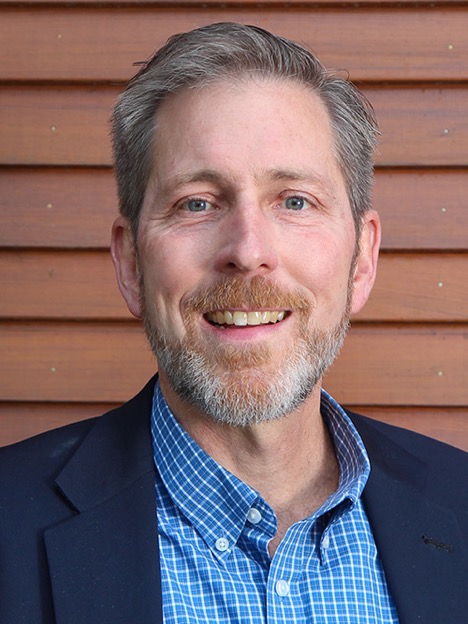Law & Liberty: “Religious Schools and the Freedom of the Church”
By Richard Garnett
“In a pair of cases involving the religious-freedom rights of parochial schools, the Supreme Court on Wednesday re-affirmed a core First Amendment rule and a crucial aspect of church-state separation, properly understood: Public officials, regulators, and courts lack the authority to decide who should, or should not, perform important religious functions. Questions about religious institutions’ religious teachings, and teachers, belong to the ‘church’ and not to the ‘state.’
In both cases—Our Lady of Guadalupe School v. Morrissey-Berru and St. James School v. Biel—former parochial-school teachers had filed employment-discrimination lawsuits after they were fired. Neither teacher was a full-time member of the clergy or an officially ordained minister but, as the seven-justice majority emphasized, ‘both performed vital religious duties’ at schools whose mission includes ‘[e]ducating and forming students in the Catholic faith.’ The Court rejected the cramped, mechanistic approach of the courts below, which had focused narrowly on the teachers’ title and training. No ‘rigid formula’ is possible, or necessary, wrote Justice Samuel Alito for the majority. Instead, ‘[w]hen a school with a religious mission entrusts a teacher with the responsibility of educating and forming students in the faith, judicial intervention into disputes between the school and the teacher threatens the school’s independence in a way that the First Amendment does not allow.’ Both as a matter of the schools’ religious liberty and of sensible church-state relations, our constitutional law respects a meaningful sphere of religious autonomy…”
Law & Liberty: “The Little Sisters Win – For Now”
By Mark David Hall
“Some of the reactions to the Supreme Court’s recent decision in Little Sisters of the Poor Saints Peter and Paul Home v. Pennsylvania could lead unsuspecting observers to believe that the Trump administration has managed to bring America into the sort of dystopian world envisioned by Margaret Atwood’s The Handmaid’s Tale. But does the decision really “endanger [the] reproductive health of millions,” as the National Organization of Women claims? Such a conclusion ignores many facts, including the reality that the Trump administration built on protections enacted or supported by earlier Democratic administrations and that the rules in question may be altered by Congress or future presidents. Most importantly, no one is attempting to deny anyone access to birth control; the only issue is whether some employers must pay for or be complicit in providing contraceptive coverage when they have religious or moral objections to doing so.
Brief History of the Contraceptive Mandate
In 2010, Congress passed the Patient Protection and Affordable Care Act (ACA). In the constitutional order envisioned by America’s founders, the law clearly exceeds Congress’s delegated powers. But that ship sailed in 1937. Even so, America’s founders would have expected Congress to specify what the law required. Alas, that ship has sailed as well…”
Richard Garnett is the Paul J. Schierl/Fort Howard Corporation Professor of Law, Concurrent Professor of Political Science, and Director of the Program on Church, State & Society at the University of Notre Dame. He teaches and writes about the freedoms of speech, association, and religion, and constitutional law more generally. He is a leading authority on questions and debates regarding the role of religious believers and beliefs in politics and society. Professor Garnett has published widely on these matters and is the author of dozens of law-review articles and book chapters. He is regularly invited to share analysis and commentary in national print and broadcast media, and he contributes to several law-related blogs. Previously, Professor Garnett clerked for the late Chief Justice of the United States, William H. Rehnquist, during the Court’s 1996 term and also for the late Chief Judge of the United States Court of Appeals for the Eighth Circuit, Richard S. Arnold.
Professor Garnett is a JMC fellow.
Learn more about Richard Garnett >>
 Mark David Hall is the Herbert Hoover Distinguished Professor of Politics at George Fox University and the Director of the John Dickinson Forum for the Study of America’s Founding Principles, a JMC partner program. Professor Hall’s primary research and writing interests are American political theory and the relationship between religion and politics. He has written or co-edited several books besides Did America Have a Christian Founding? and is the author of more than 100 journal articles, book chapters, reviews and sundry pieces. In addition to teaching at George Fox University, Hall is Associated Faculty at the Center for the Study of Law and Religion at Emory University, Senior Fellow at Baylor University’s Institute for Studies of Religion, and an Affiliate Scholar at the John Jay Institute.
Mark David Hall is the Herbert Hoover Distinguished Professor of Politics at George Fox University and the Director of the John Dickinson Forum for the Study of America’s Founding Principles, a JMC partner program. Professor Hall’s primary research and writing interests are American political theory and the relationship between religion and politics. He has written or co-edited several books besides Did America Have a Christian Founding? and is the author of more than 100 journal articles, book chapters, reviews and sundry pieces. In addition to teaching at George Fox University, Hall is Associated Faculty at the Center for the Study of Law and Religion at Emory University, Senior Fellow at Baylor University’s Institute for Studies of Religion, and an Affiliate Scholar at the John Jay Institute.
Professor Hall is a JMC faculty partner.
Learn more about Mark David Hall >>
![]()
![]() Follow us on Facebook and Twitter for updates about lectures, publications, podcasts, and events related to American political thought, United States history, and the Western political tradition!
Follow us on Facebook and Twitter for updates about lectures, publications, podcasts, and events related to American political thought, United States history, and the Western political tradition!
Want to help the Jack Miller Center transform higher education? Donate today.

